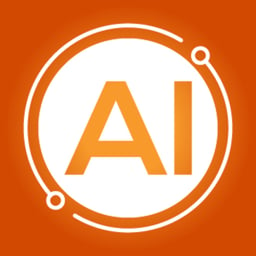
Melisa Tokmak, founder of Netic | Image source: Melisa Tokmak/LinkedIn
Netic AI has closed a $23 million Series B funding round led by Founders Fund to scale its autonomous AI revenue engine for home services businesses. The startup targets an often-overlooked market of plumbers, roofers, electricians, and other essential service providers, applying AI automation to fragmented industries still reliant on manual processes.
AI for Plumbers: Overlooked Market Gets Silicon Valley Attention
While most AI startups chase enterprise software buyers or consumer applications, Netic focuses on blue-collar service businesses that Silicon Valley typically ignores. The home services market represents a massive economic sector with millions of small businesses struggling with client acquisition, scheduling, and business operations.
Plumbers, roofers, electricians, and HVAC technicians often run successful local businesses but lack sophisticated technology infrastructure. Many still rely on paper scheduling, basic spreadsheets, and word-of-mouth marketing. This digital immaturity creates opportunities for AI automation to deliver immediate productivity gains and revenue growth.
Netic's platform provides an autonomous AI revenue engine that handles client outreach, appointment booking, marketing campaigns, and business analytics. By automating these time-consuming tasks, service providers can focus on their core work while AI handles business development and customer management.
Founders Fund Backs Blue-Collar AI Applications
Founders Fund's decision to lead Netic's Series B signals growing investor interest in AI applications for overlooked sectors rather than competing on foundational models. The firm, co-founded by Peter Thiel and known for contrarian bets, sees potential for significant returns in applying existing AI capabilities to underserved markets.
The investment thesis is straightforward: home services businesses generate substantial revenue but operate with minimal technology infrastructure. Even basic AI automation can dramatically improve their customer acquisition and operational efficiency, creating clear ROI that justifies software subscription costs.
This represents a shift from the AI infrastructure arms race focused on building more powerful foundation models. Instead, investors increasingly recognize that applying current AI capabilities to specific industries may generate faster revenue and more defensible businesses than competing with OpenAI and Anthropic on model development.
Founder Background Brings Enterprise AI Experience
Melisa Tokmak founded Netic in late 2024 after serving as General Manager and Chief of Staff at Scale AI, a prominent AI infrastructure company valued at over $13 billion. At Scale, she oversaw government and enterprise business units, gaining deep experience in how organizations implement AI solutions and what drives adoption.
Tokmak's background also includes a Stanford computer science degree and experience growing up in a small town in Turkey before moving to the United States. This combination of technical expertise and understanding of underserved markets informs Netic's approach to building AI tools for businesses outside the typical Silicon Valley customer base.
Her Scale AI experience particularly relevant for Netic's enterprise positioning. While targeting small home services businesses, the platform needs enterprise-grade reliability, data security, and customer support. Tokmak's experience building for large organizations translates into better product quality for small business customers.
How Netic's AI Revenue Engine Works
Netic's platform automates the entire customer acquisition and management workflow for home services businesses. The AI handles outbound marketing to potential customers through multiple channels, responds to inbound inquiries, schedules appointments based on technician availability, sends reminders, and follows up after service completion.
The system also provides business analytics showing customer acquisition costs, conversion rates, and revenue by service type. This data visibility helps service providers make better business decisions about pricing, marketing spend, and resource allocation without requiring data analytics expertise.
By handling these tasks autonomously, Netic allows service providers to operate more like larger companies with dedicated sales and marketing teams while maintaining small business flexibility and cost structures. A solo plumber using Netic gains capabilities previously available only to multi-location service companies with administrative staff.
Market Opportunity in Fragmented Home Services
The home services industry remains highly fragmented with mostly small, independent operators. While some consolidation has occurred through franchise models and private equity rollups, the majority of plumbers, electricians, and roofers still operate as independent businesses or small firms.
This fragmentation creates a massive total addressable market for software that can help small operators compete more effectively. With hundreds of thousands of potential customers and low existing technology adoption, Netic can grow substantially by capturing even a small percentage of the market.
The $23 million Series B will fund product development, sales team expansion, and marketing to reach more home services businesses. Success will depend on demonstrating clear ROI and building word-of-mouth adoption in communities of service providers who trust peer recommendations over typical SaaS marketing.
Why This Matters for the AI Industry
Netic's success would validate that AI's biggest impact may come not from replacing white-collar knowledge work but from upgrading blue-collar businesses with better operational tools. Home services, construction, agriculture, and other "unsexy" industries represent enormous economic value and massive opportunities for productivity improvement through AI automation.
If Netic demonstrates strong unit economics and customer retention, expect more AI startups to target overlooked industries rather than competing in crowded enterprise software categories. The lesson may be that practical AI applications solving real business problems generate better returns than chasing theoretical capabilities at the frontier of AI research.




